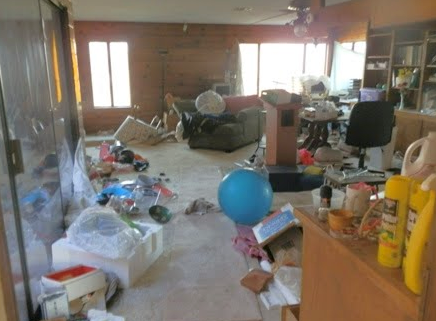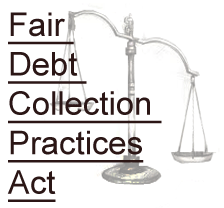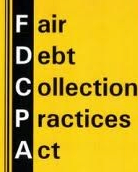By Sandra L. Gottlieb, Esq., HOA and Condo Attorneys
 Attorneys from the law firm SwedelsonGottlieb and Association Lien Services (ALS) attended Community Associations Institute Orange County Chapter’s (CAI-OC) Educational Luncheon on January 15, 2013 dealing with a California community associations’ rights and obligations following an HOA’s lien foreclosure sale. We did not like everything that we heard. This post is intended to set out our thoughts and opinions which differ from the speakers’ opinions with regard to improvements to the property during the statutory redemption period and the yet to be determined application of rent skimming to community associations and management companies.
Attorneys from the law firm SwedelsonGottlieb and Association Lien Services (ALS) attended Community Associations Institute Orange County Chapter’s (CAI-OC) Educational Luncheon on January 15, 2013 dealing with a California community associations’ rights and obligations following an HOA’s lien foreclosure sale. We did not like everything that we heard. This post is intended to set out our thoughts and opinions which differ from the speakers’ opinions with regard to improvements to the property during the statutory redemption period and the yet to be determined application of rent skimming to community associations and management companies.
The speakers at the January 15th program suggested that a California community association association that takes title to a property following foreclosure should not make improvements, including repairs necessary to rent the unit or home. We do not agree. California Code of Civil Procedure Section 729.060 contemplates that such improvements may be made to the property and that the redemption price shall include, in addition to and among other things, the “reasonable amounts for fire insurance, maintenance, upkeep, and repair of improvements on the property.” In fact, this very issue was litigated and the subject of an unpublished Court of Appeal opinion. In that case, the trial court found, and on appeal the appellate court determined, that money spent on improvements could be included in the redemption amount. In addition, the court found that there was no error in finding that the amount due in order to redeem the property previously foreclosed properly included over $17,900.00 in expenses the third party paid for maintenance and repair work on the unit after the foreclosure sale but prior to the expiration of the redemption period, an electric bill and interest on the foreclosure sale purchase price.
Continue reading
 There has been some confusion as to whether a community association’s trustee, after a nonjudicial foreclosure sale (for the collection of delinquent assessments), may record a trustee’s deed upon sale prior to the expiration of the 90-day right of redemption required by California Civil Code Section 1367.4 and California Code of Civil Procedure Section 729.035. A plain reading of California law provides no explicit answer.
There has been some confusion as to whether a community association’s trustee, after a nonjudicial foreclosure sale (for the collection of delinquent assessments), may record a trustee’s deed upon sale prior to the expiration of the 90-day right of redemption required by California Civil Code Section 1367.4 and California Code of Civil Procedure Section 729.035. A plain reading of California law provides no explicit answer.  HOA Law Blog
HOA Law Blog





 Attorneys from the law firm SwedelsonGottlieb and Association Lien Services (“ALS”) attended California Association of Community Managers’ (“CACM”) 2013 Northern California Law Seminar in January of 2013. One of the programs dealt with assessment collection strategies. We did not like everything that we heard. This post is intended to set out our thoughts and opinions which differ from the attorney speaker’s opinions with regard to assessment collection strategies.
Attorneys from the law firm SwedelsonGottlieb and Association Lien Services (“ALS”) attended California Association of Community Managers’ (“CACM”) 2013 Northern California Law Seminar in January of 2013. One of the programs dealt with assessment collection strategies. We did not like everything that we heard. This post is intended to set out our thoughts and opinions which differ from the attorney speaker’s opinions with regard to assessment collection strategies. Attorneys from the law firm SwedelsonGottlieb and Association Lien Services (ALS) attended Community Associations Institute Orange County Chapter’s (CAI-OC) Educational Luncheon on January 15, 2013 dealing with a California community associations’ rights and obligations following an HOA’s lien foreclosure sale. We did not like everything that we heard. This post is intended to set out our thoughts and opinions which differ from the speakers’ opinions with regard to improvements to the property during the statutory redemption period and the yet to be determined application of rent skimming to community associations and management companies.
Attorneys from the law firm SwedelsonGottlieb and Association Lien Services (ALS) attended Community Associations Institute Orange County Chapter’s (CAI-OC) Educational Luncheon on January 15, 2013 dealing with a California community associations’ rights and obligations following an HOA’s lien foreclosure sale. We did not like everything that we heard. This post is intended to set out our thoughts and opinions which differ from the speakers’ opinions with regard to improvements to the property during the statutory redemption period and the yet to be determined application of rent skimming to community associations and management companies. Under California law, a condo or homeowners association has the right to foreclose on an owner’s interest in their condominium or property if they fail to pay the assessments or fees that are levied on them. It never ceases to amaze me that homeowners are surprised when their association forecloses.
Under California law, a condo or homeowners association has the right to foreclose on an owner’s interest in their condominium or property if they fail to pay the assessments or fees that are levied on them. It never ceases to amaze me that homeowners are surprised when their association forecloses. Blog Post By David Swedelson, SwedelsonGottlieb Community Association Attorneys
Blog Post By David Swedelson, SwedelsonGottlieb Community Association Attorneys We have had to extricate several of our community association clients (and often their management as well) from claims or lawsuits relating to the federal Fair Debt Collections Practices Act (FDCPA). It is well settled law that the FDCPA applies to the collection of delinquent and unpaid assessments for condominium and homeowner associations. However, the FDCPA does not apply to collection efforts which a community association, the creditor, undertakes on its own to collect on a debt, nor does it apply to its agents whose collection activities are “incidental to a bona fide fiduciary obligation” or which concern a “debt which was not in default at the time it was obtained by such person.”
We have had to extricate several of our community association clients (and often their management as well) from claims or lawsuits relating to the federal Fair Debt Collections Practices Act (FDCPA). It is well settled law that the FDCPA applies to the collection of delinquent and unpaid assessments for condominium and homeowner associations. However, the FDCPA does not apply to collection efforts which a community association, the creditor, undertakes on its own to collect on a debt, nor does it apply to its agents whose collection activities are “incidental to a bona fide fiduciary obligation” or which concern a “debt which was not in default at the time it was obtained by such person.” California community associations have been filing a lot of lawsuits the last three or so years attempting to collect delinquent assessments. Usually, these lawsuits are filed against owners that have lost their homes to their lender in foreclosure, wiping out their condominium development’s or planned development’s assessment lien. These associations are left with only a judicial remedy to collect what is owed their association.
California community associations have been filing a lot of lawsuits the last three or so years attempting to collect delinquent assessments. Usually, these lawsuits are filed against owners that have lost their homes to their lender in foreclosure, wiping out their condominium development’s or planned development’s assessment lien. These associations are left with only a judicial remedy to collect what is owed their association.